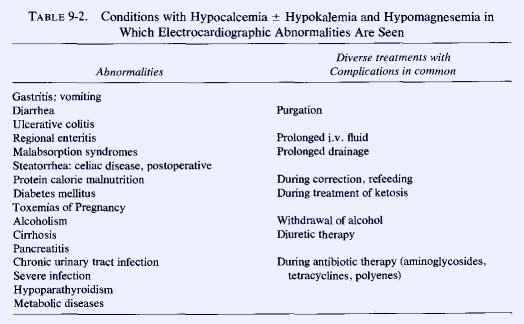Hypokalemia is a condition wherein there is low potassium count in the blood. Potassium is an important electrolyte to maintain good health. It is greatly responsible for maintaining muscle tone and balancing water content in the body and equalizing blood pressure as well.
Potassium is vital for the normal cells in our body to function properly. Ninety-eight percent of potassium is found inside the cells and only 2% on the serum. Any event that would cause potassium to drop down greatly is a big risk to one’s health. Hypokalemia is a serious condition and should be given attention immediately.
Hypokalemia Symptoms
Mild Hypokalemia often doesn’t show any symptoms. But if tests show that one has potassium levels in the blood below normal, one should immediately take action to correct this. Moderate Hypokalemia can cause an individual to feel weak and experience episodes of muscle pains and cramps, since one of the main functions of potassium is to maintain normal muscle tone and function. Constipation may also happen as well as fatigue. For severe Hypokalemia, palpitations could occur due to developed arrhythmia. Rhabdomyolysis or the rapid breakdown of muscle tissues can also happen if not treated right away.
What Causes Hypokalemia?
• Poor dietary intake – The most common cause of this condition is the inadequate intake of potassium-rich foods. Hypokalemia can also happen to persons who tend to starve themselves.

• Gastrointestinal problems and integument loss – Another common cause of Hypokalemia is the excessive flushing of fluids out of the body. This can happen with extreme sweating or fluid loss due to surgery or operation. Diarrhea is also a common cause of Hypokalemia as it washes out potassium and other electrolytes out of the body as well. Hypokalemia can also happen with excessive vomiting.
• Excessive urinary output – Some people take in medicines for certain illnesses. And some of these drugs can cause frequent urination. These drugs are called “diuretics”. Examples of these drugs include hydrochlorothiazide and furosemide. Other strong medicines such as amphoterecin B and the antineoplastic cancer drug, cisplatin causes long-term Hypokalemia. Hypertensive patients also take in diuretics as their maintenance drugs.
• Hypomagnesemia – Hypomagnesemia is a condition when there is a decreased quantity of magnesium inside the body. Magnesium is needed for the formation of potassium. Hypokalemia will result if there is low magnesium content in the body.
Treatment for Hypokalemia
If a person has Hypokalemia, it is very essential for him/her to seek medical attention, especially if it is already serious. A series of tests will be conducted to determine how low the potassium level is. These diagnostic tests include blood tests and electrocardiograms. Hypokalemia is treated by oral potassium supplements like kalium durule tablets. For patients taking in diuretics, potassium should also be taken to compensate for the loss of potassium. For severe Hypokalemia, intravenous potassium should be given slowly. A huge amount of potassium can cause dangerous increased heart rhythms.
Maintaining Normal Potassium Levels in the Body
The best way to prevent Hypokalemia is to maintain a healthy diet. Potassium rich foods such as bananas, oranges, apricots and tomatoes should be included in one’s diet. Hypokalemia is unnoticeable at first, but can get serious when not corrected promptly. Thus, eat right and all else will be alright.
tnx!!!sa info!!!!!!!!!